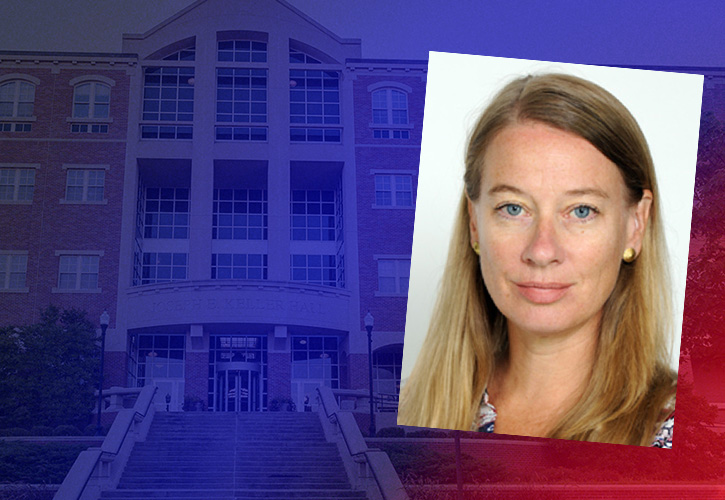College of Arts and Sciences Newsroom

Shelley Inglis to step down as UD Human Rights Center executive director
By Dave Larsen
Shelley Inglis, executive director of the University of Dayton Human Rights Center, will step down from her position at the end of the 2022-23 academic year.
Inglis brought 15 years of United Nations human rights experience to UD when she joined the center in August 2018. She spent four years as a regional cluster leader in the U.N. Development Programme in Istanbul, and also served as a policy advisor for the program at U.N. headquarters in New York City.
At UD, Inglis forged collaborations with U.N. programs, nongovernmental organizations and University academic units. The latter resulted in a new human rights minor for students in the School of Engineering, and a global information systems-related project with the UD Department of Geology and Environmental Geosciences and the American Association for the Advancement of Science.
Inglis also added new staff positions and faculty affiliations that supported existing programming and made new initiatives possible, said Don Pair, former College of Arts and Sciences associate dean for interdisciplinary research and experiential initiatives, who oversaw the College’s centers and institutes.
“During Shelley’s time at UD, the HRC has developed a range of new partnerships that provide experiential learning and research-related opportunities for students and center faculty and staff,” said Pair, who in June was named executive director of the UD Hanley Sustainability Institute. “These partnerships are the basis of engagements for the HRC’s signature Social Practice of Human Rights conference.”
Pair also credited Inglis for building an executive advisory committee with a diverse, globally distributed group of leaders in the human rights community. In addition, she led an evidence-based visioning process that engaged nearly 300 people and produced the Human Rights Center’s Strategic Visioning document.
Inglis is proud of her work expanding the center’s outreach to students of all majors through its curricular and co-curricular offerings. While most of her four years at the center coincided with the COVID-19 pandemic, she developed partnerships with organizations such as Cristosal, Counterpart International and the Business and Human Rights Resource Center to connect students with remote and in-person internships and research opportunities.
“Last summer we had 13 fellowship placements,” Inglis said. “This summer, we hope to have more than 15 placements for students to work on human rights issues, particularly in a number of places in Africa. We have expanded beyond our traditional Malawi Research Practicum on Rights and Development.”
Currently, the center has 17 student workers who organize human rights-related campus events and do advocacy work for center projects like Abolition Ohio. The students also engage in human rights advocacy through the Human Rights Advocacy Group, which is supported by the center.
In September, the Human Rights Center announced a $352,109 grant from the U.S. Department of Homeland Security to develop a network of regional organizations to help prevent domestic violent extremism in southwest Ohio and beyond. The Preventing Radicalization to Extremist Violence through Education, Network-Building and Training in Southwest Ohio (PREVENTS-OH) project includes student experiential learning and community engagement components.
“We’ve really engaged the community in Dayton around thinking about human rights, which is something the center didn’t do before I came,” Inglis said. “I think that’s added depth to our partnerships at the community level, and to community discourse around justice and human rights.”
UD School of Law Dean Andrew Strauss said Inglis will leave a significant legacy, having brought collaboration between the Human Rights Center and the School of Law to a new level. Under her leadership, the center moved into the law school’s building, Joseph E. Keller Hall, reinforcing faculty and staff relationships.
“As a research professor at the School of Law, Shelley brought her years of high-level experience at the United Nations to our students, and by doing so she opened up to many of them the world of international human rights law,” Strauss said. “I am very appreciative of all that she has done.”
Inglis is looking at new opportunities, but isn’t ready to announce her next move. Her husband, who works in architecture, wants to be closer to one of his firm’s offices, so she anticipates relocating from Ohio.
Coming from a different institutional background, Inglis said she values the amount of learning and exposure she’s gained from her position at UD.
“I think it is really important that UD continue to put human rights at the center of its educational, research and community-based engagement,” she said. “I just hope the Human Rights Center continues to be a flagship for this university. It’s probably more important now than it was before I came.”
For more information, visit the Human Rights Center website.
